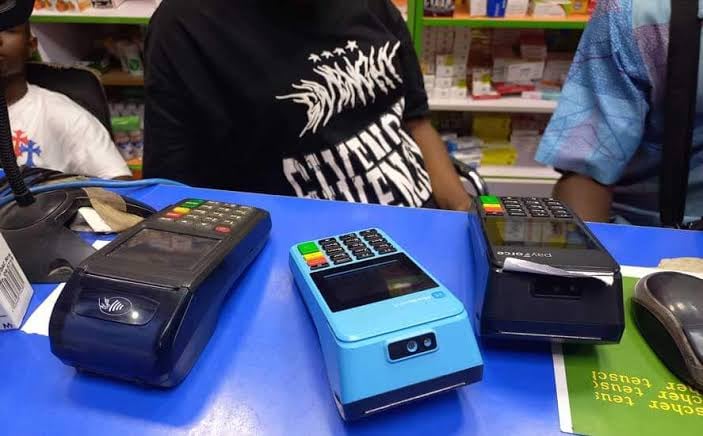🍔 Quick Bite: The CBN wants every PoS machine in Nigeria to be geo-tagged. It could make fraud harder, but it also raises questions. Will small agents survive the extra costs? Will customers trade convenience for security? Or will this just be another rule that looks neat on paper but messy in practice?
🧠 The Breakdown
When the Central Bank of Nigeria announced that every PoS terminal must be geo-tagged, it set off debates across the financial ecosystem, from payment operators to everyday users.
The new rule requires all terminals, old and new, to run on Android 10 or higher, come with reliable GPS, and capture their exact latitude and longitude at the start of each transaction. Each device must also stay within 10 metres of its registered location.
This directive aims to combat fraud, but raises challenging questions about cost, feasibility, and privacy.
The PoS boom has been one of Nigeria’s most remarkable fintech stories. Over the past five years, agents have turned every street corner into a mini bank branch. PoS operators keep cash moving in a country where ATMs can be unreliable and scarce. This rapid growth attracted fraudsters. Fake agents, cloned devices, and location-hopping scammers. The numbers show both the scale of growth and the risk that comes with it. By March 2025, Nigeria had about 8.36 million registered PoS terminals and roughly 5.9 million active devices, according to the National Interbank Settlement System (NIBSS). PoS transaction value hit about $7.4 billion in Q1 2025, up 301% year-on-year, according to the NIBSS. Fraud losses grew alongside this boom, from ₦11.61 billion in 2020 to ₦52.26 billion in 2024.
Those figures explain why the CBN believes geo-tagging is necessary. The logic is straightforward: if regulators can pinpoint where a terminal operates, they can track suspicious activity and reduce fraud.
The Implementation challenge
What does this mean for the ecosystem that runs on these devices? For agents, this may mean upgrading their hardware to support GPS. That’s an expensive ask in a business where margins are already tight. Some agents might simply drop out, especially in rural areas where business volumes don’t justify new investment.
Obioha Oti, acting National President of the Association of Mobile Money and Bank Agents, spoke on Channels TV about the challenges ahead. While he called the directive good in principle, he noted the real problem lies in implementation.
“At least 40% of the PoS devices in the market are not Android-based,” Oti explained. “This means a large number will need to be withdrawn and replaced with new, compliant versions, which will require significant resources.”
The 60-day timeline compounds these problems. Oti appealed for a phased approach, pointing out that during upgrades, devices would have to be switched off, which would affect business operations. He referenced the recent naira redesign confusion as a cautionary tale about the dangers of rushed implementation.
Mobile agents present another puzzle. These operators roam rather than having fixed stalls, often found in travel parks and markets. How do they comply with a 10-metre radius rule when mobility is their business model?
Technical and privacy concerns
GPS technology has its own limitations. It works best with a clear view of the sky. Indoor malls, covered markets, and dense urban areas can produce weak readings.
Then there’s the privacy question. Geo-tagging means collecting and storing sensitive location data, not just about agents but indirectly about consumers who rely on them. Who controls this data? How long will it be stored? Can it be misused? These questions remain unanswered. In a country where trust in institutions is already fragile, these gaps matter.
Other countries have tried similar approaches with mixed results. In India, regulators tightened identity checks on payment devices to curb fraud, but many small merchants found the process too burdensome and reverted to cash. Kenya also tried location-based tracking of mobile money agents. It led to more than 8,300 agents dropping off M-Pesa, while privacy worries surfaced almost immediately.
Nigeria risks repeating the same cycle: solving one problem while creating another. The CBN’s goal is understandable: fraud erodes trust in the financial system, and once trust is lost, adoption slows. But a one-size-fits-all rule risks squeezing the very people who keep financial services accessible to millions.
The rise of PoS agents has been one of the strongest drivers of financial inclusion. But if higher compliance costs force smaller operators out, many communities could lose their closest option for cash withdrawals or transfers. The coming months will reveal whether geo-tagging delivers real solutions or ends up as another regulation that works on paper but falters in practice.
📈 Trending Stories
Here are other important stories in the media:
- Nigerian passport fees hit ₦200,000 as FG implements second hike in a year
- Access Holdings installs Ike as group CEO in 48-hour leadership overhaul
- South Africa’s ACH, BankservAfrica rebrands to PayInc SA
Jobs, opportunities, and more
We carefully curate open opportunities in Product & Design, Data & Engineering, and Admin & Growth every week.
Product & Design
- Cordros — Product Manager, Lagos
- Paystack — Product Marketer, Lagos
- Gamma Mobility — Senior Product Designer, Lagos
Data & Engineering
- Buffer — Senior Product Engineer, Remote
- Gamma Mobility — Senior Backend Engineer, Lagos
- Search Atlas — Backend Engineer, Remote
- Trust Wallet — Backend Engineer, Remote
- SeamlessHR — Senior Data Engineer, Remote
- Produqtedge — Quality Analyst, Lagos
- Chimoney — Fullstack Web Developer, Remote
- Chimoney — Senior Fullstack Web Developer, Remote
Admin & Growth
- Paystack — Performance Marketing Specialist, Lagos
- Wynd Labs — Growth Associate, Remote
Get passive updates on African tech & startups
View and choose the stories to interact with on our WhatsApp Channel
Explore




